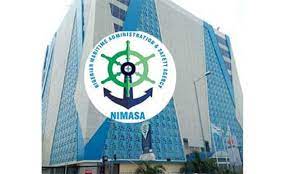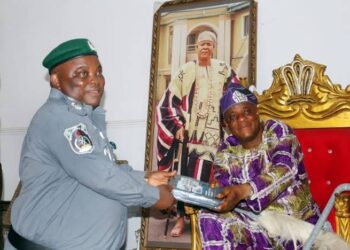Recently, the House of Representatives Committee on Maritime Safety, Education and Administration held a public hearing on the review of three maritime legislations.

The legislations are: The Nigerian Maritime Administration and Safety Agency (NIMASA) Act and the Coastal and Inland Shipping Act, otherwise known as the Cabotage law. The laws were enacted between 2003 and 2007. Nigerian Merchant Shipping Act,
Specifically, the Merchant Shipping Act was enacted in 2007, the NIMASA Act came into being also in 2007 as a merger of the defunct Nigerian Maritime Authority (NMA) and the Joint Maritime Labour Industrial Council (JOMALIC) and the Government Inspector of Shipping (GIS). The Cabotage Act was enacted in 2003.
Instructively, JOMALIC came into the ‘NIMASA marriage’ with maritime labour administration, NMA came with in shipping development and administration and the GIS came with its maritime safety administration, respectively.
Our concern as a maritime media organisation is with the NIMASA Act and the Cabotage Act; two legislations that were meant to rejuvenate the Nigerian maritime sector.
Having been operated for about 18 years, it will not be out of place to state here that the Cabotage Act is a piece of ineffective legislation, never allowed to work by those who were meant to implement it.
With a lofty objective of deliberately reserving commercial transportation of goods and services within Nigeria’s coastal and inland for Nigerian-flag vessels and vessels that are owned by Nigerians, the Cabotage Law of 2003 spelt out four pillars upon which its implementation must rest.
The four pillars are that: Cabotage vessels must be wholly -owned by Nigerians; they must be registered in Nigeria, must be crewed by Nigeria and Nigerian shipyards must build and repair Cabotage vessels.
Between 2004 when the Act came into being and now, there have been about 11 ministers of transportation and at least 10 directors’ general at the helm of affairs at the NMA and its successor agency; the Nigerian Maritime Administration and Safety Agency (NIMASA). What have been their efforts to make the Act work.
About 18 years down the line, it is apt to ask the following questions: Why has it been difficult for Cabotage to create (even) marginal employment for the nation’s swelling population of seafarers. Why is it that both NIMASA and the supervisory ministry of transportation are more interested in granting waivers to foreign flag vessels to continue trading on our coastal waters in clear circumvention of the provisions of Cabotage? Why is it that 18 years Cabotage came to be, indigenous shipping practitioners are still full of the same lamentations as they were, prior to the enactment of the Act and they still complain that multinationals are dominating the business of shipping in Nigeria? Has Cabotage impacted on Nigeria as a whole?
Can we then ask NIMASA these questions: How many indigenous ship owning companies has it registered since 2004, when actual implementation of Cabotage started and how many foreign? To what extent has the Cabotage Vessel Financing Fund (CVFF) been useful to Nigerian operators and how many have benefited and how much has been given out?
We take note of the explanation by the Speaker of the House of Representatives; Mr Femi Gbajabiamila that the 9th Assembly was embarking on the amendment of the NIMASA Act 2007 and the Cabotage Act 2003 due to the need to improve the regulatory instruments in the Nigerian maritime sector to meet the need of current realities.
While we are not opposed to a review of any legislation that is found to have outlived its usefulness, we harken to note that Nigerian legislature has a penchant for rushing to pass any law thrown at them for selfish interests.
In the submission of the Minister of Transportation; Mr Rotimi Amaechi at the recent public hearing, the new NIMASA Bill under consideration will enhance the capacity of the agency to effectively regulate the Nigerian maritime industry in line with international best practice.
But, we are of the opinion that there is nothing significantly wrong with the current NIMASA Act. It’s only problem is the challenge of implementation.
Read Also: Do you believe that NIMASA Act and the Cabotage Act should be amended?
A cursory look at a few of the positions canvassed at the hearing revealed the fears that we nurse about amendment of the NIMASA Act. The ministry does not support 12% of NIMASA revenue going to the Nigerian Maritime University Okerenkoko. The Ministry’s argument is that the proposal does not recognize the fact that the university, like other public institutions under the supervision of the National University Commission and the Federal Ministry of Education, is entitled to public funds as may be appropriated by the National Assembly on an annual basis. Inserting that clause in the proposed new law is self-serving and likely prompted by primordial interests. If there is nothing to it than meets the eye, the Maritime University should not get statutory allocation from NIMASA earnings. We are not surprised therefore that the Ministry’s position was supported by NIMASA, which is already bearing the burden of funding the Maritime Academy of Nigeria in Oron.
Apart from the above, the positions of the stakeholders’ interest groups such as: Shipowners Association of Nigeria (SOAN), Nigerian Chamber of Shipping, WISTA, CIOTA, Nigerian Welfare Board, National Association of Master Mariners, and others were expectedly from the stand point of self-preservation.
Finally, the success of NIMASA is tied to the effective implementation of the Cabotage Act 2003; not even a review of it.
Kindly like us on Facebook















